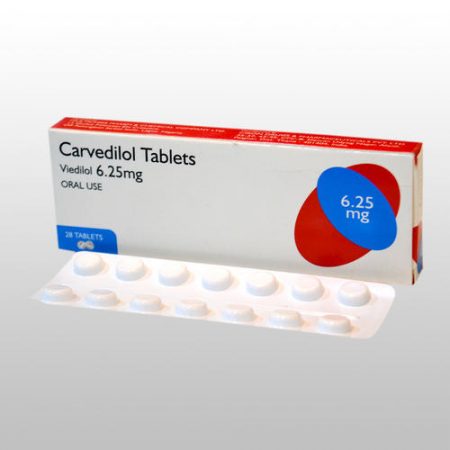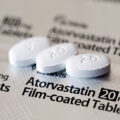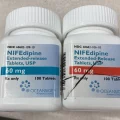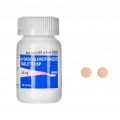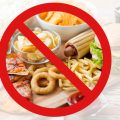Carvedilol belongs to a class of drugs known as alpha and beta-blockers, it is a medication used to treat heart failure (condition in which the heart cannot pump enough blood to all parts of the body) and high blood pressure. It also is used to treat people who have had a heart attack. Carvedilol is often used in combination with other medications. Carvedilol is in a class of medications called beta-blockers. It works by relaxing blood vessels and slowing heart rate to improve blood flow and decrease blood pressure
High blood pressure is a common condition and when not treated, can cause damage to the brain, heart, blood vessels, kidneys and other parts of the body. Damage to these organs may cause heart disease, a heart attack, heart failure, stroke, kidney failure, loss of vision, and other problems. In addition to taking medication, making lifestyle changes will also help to control your blood pressure. These changes include eating a diet that is low in fat and salt, maintaining a healthy weight, exercising at least 30 minutes most days, not smoking, and using alcohol in moderation.
How should this medicine be used?
Carvedilol comes as a tablet and an extended-release (long-acting) capsule to take by mouth. The tablet is usually taken twice a day with food. The extended-release capsule is usually taken once a day in the morning with food. Try to take carvedilol at around the same time(s) every day. Follow the directions on your prescription label carefully, and ask your doctor or pharmacist to explain any part you do not understand. Take carvedilol exactly as directed. Do not take more or less of it or take it more often than prescribed by your doctor.
Swallow the extended-release capsules whole. Do not chew or crush the capsules, and do not divide the beads inside a capsule into more than one dose. If you are unable to swallow the capsules, you may carefully open a capsule and sprinkle all of the beads it contains over a spoonful of cool or room temperature applesauce. Swallow the entire mixture immediately without chewing.
Your doctor will probably start you on a low dose of carvedilol and gradually increase your dose to allow your body to adjust to the medication. Talk to your doctor about how you feel and about any symptoms you experience during this time.
Carvedilol may help to control your condition but will not cure it. Continue taking carvedilol even if you feel well. Do not stop taking carvedilol without talking to your doctor. If you suddenly stop taking carvedilol, you may experience serious heart problems such as severe chest pain, a heart attack, or an irregular heartbeat. Your doctor will probably want to decrease your dose gradually over 1 to 2 weeks. Your doctor will watch you carefully and will probably tell you to avoid physical activity during this time.
What To Do If You Accidentally Took Double Dose Of Carvedilol
A medication error is defined as “any preventable event that may cause or lead to inappropriate medication use or patient harm while the medication is in the control of the healthcare professional, patient, or consumer,” according to the National Coordinating Council for Medication Error Reporting and Prevention.
The typical threshold for carvedilol toxicity in overdose is 50 mg but in patients with cirrhosis this is not applicable. Taking too much carvedilol could cause your heart to stop. Symptoms of overdose of carvedilol include: low blood pressure and heart rate. Carvedilol can cause dangerously low blood pressure, which may cause you to lose consciousness. This risk is highest after your first doses and during dosing increases. To decrease the risk of this happening, take carvedilol with food. Your doctor may start you on a low dosage and slowly increase it.
If you’ve taken more than the recommended amount of carvedilol, call for emergency medical help immediately or poison control at 800-222-1222 (in U.S.) even if you have no symptoms. Poison Control experts will advise you on how to proceed.
To avoid accidental overdose always keep drugs stored in their original containers. Many pills look alike, so keeping them in their original containers will help know the name of the drug and how to take them. If you are having trouble keeping multiple medications straight, ask your doctor or pharmacist about helpful aids.
Keep an updated list of all medications taken for health reasons, including OTC drugs, supplements, medicinal herbs, and other substances. Give a copy of this list to your healthcare provider. ALSO READ: What to do If You Accidentally Took Double Dose of Losartan

